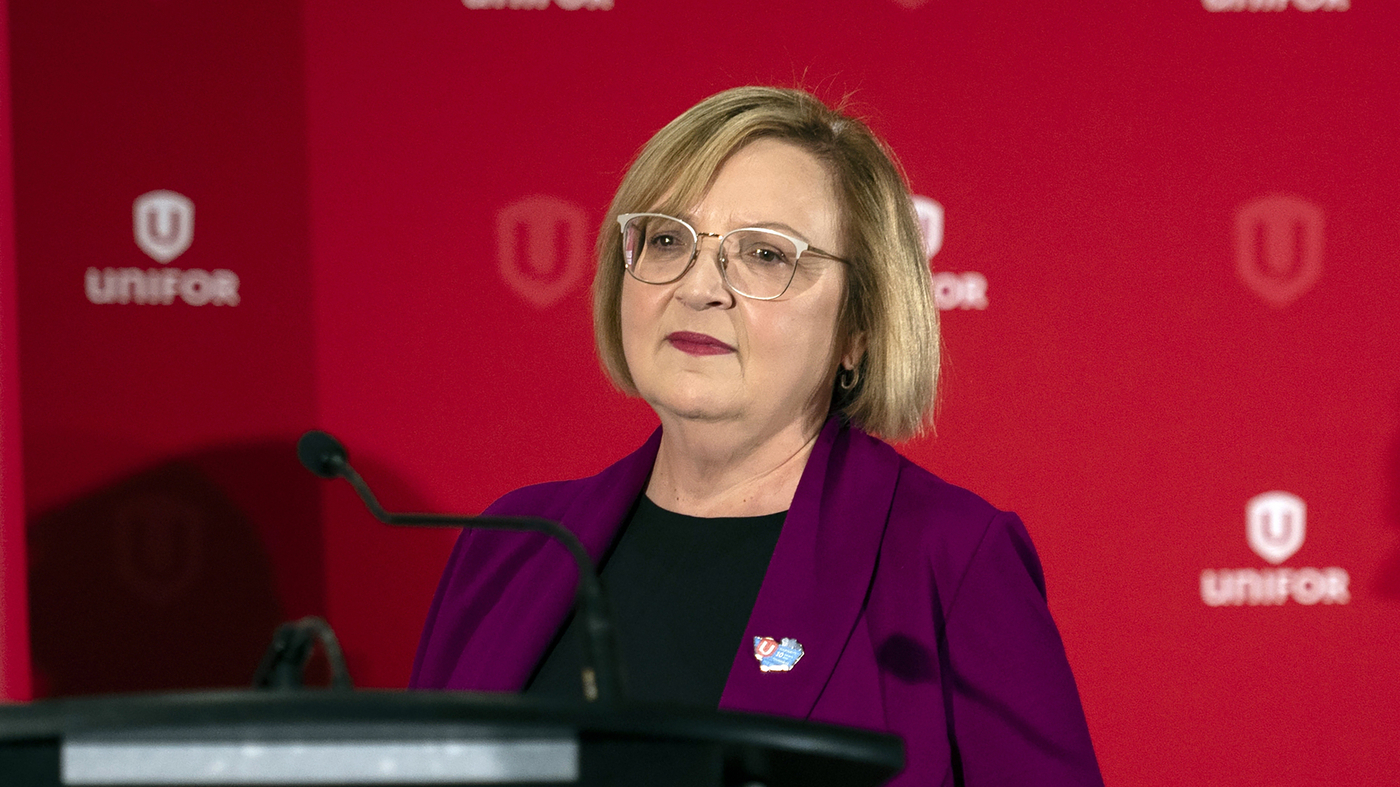The Canadian Autoworkers and General Motors Reach a Tentative Contract Agreement (GM, Unifor, Nov. 7): Negotiating a Proposed Agreement with the Company
GM said that it reached the deal with Unifor around 1 p.m. Tuesday after workers went on strike at the Ontario facilities just after midnight. The deal gives recognition to employee contributions with increases in pay and benefits.
4,300 striking workers at two GM factories and a parts warehouse will return to work Tuesday afternoon and vote on the three-year deal later.
The Unifor union’s Lana Payne said that the GM had no choice when faced with the strike but to follow a pattern agreement with Ford.
She says the deal includes things the company had initially resisted, such as pensions, retiree income supports and converting full-time temporary workers into permanent employees.
The agreement covers autoworkers at three plants, including the assembly plant in Oshawa.
The GM deal is expected to get a vote in the coming days. If approved, only Jeep maker Stellantis would be left without a contract with Unifor. The company is the largest manufacturing footprint in Canada of the Detroit automakers, and Payne said she expects talks to begin soon.
The Unifor said that the raises for production workers and skilled trades are 25% and 20%, respectively. Workers would get 10% in general pay raises in the first year, with 2% in the second and 3% in the third. The company agreed to raise pay in December of 2024. Those who have been with the company for a year would get permanent jobs, while temporary workers would get pay raises.
UAW Strikes at the CAMI Assembly Plant: Why the Union is So Fidgety? Why GM Hasn’t Solved It?
The union had a lot of leverage with GM because the factory in Oshawa is working around the clock to make Chevrolet pickup trucks, according to Payne.
The UAW strikes have resulted in the laying off of nearly 5000 workers at other plants than those hit by the strikes.
Unifor members at a fourth GM facility, the CAMI Assembly Plant in Ingersoll, Ontario, are covered by a separate bargaining agreement and did not strike.
The surprise move about 6:30 p.m. took down the largest and most profitable Ford plant in the world. The factory makes the F-Series pickup truck and Lincoln SUVs.
Shawn Fain stated in a statement that the union has waited enough and that Ford hasn’t gotten the message to negotiate a fair contract.
If they can’t understand that after four weeks the 8,700 workers will close the plant, it will help them.
The strike came nearly four weeks after the union began its walkouts against General Motors, Ford and Jeep maker Stellantis on Sept. 15, with one assembly plant from each company.
The strike expansion is “grossly irresponsible” according to Ford and it is unsurprising given the UAW leadership’s stated intention to keep Detroit automakers hobbled with “industrial chaos.”
A Ford executive said the union set up a meeting at the company’s headquarters in Michigan and that Fain asked if the company had another offer.
Battery plants are a major point of contention in the negotiations. The union wants the plants to be unionized to make sure that jobs and wages are not lost when the industry transitions to electric vehicles.
The Memphis Truck Plant Case: “You Just Lost Kentucky Truck Plant,” Rev. J. C. Fain (D.C., 1974), Emer. Phys. Lett. A. McKean
He said, “You just lost Kentucky Truck Plant”, when he said that that was the company’s best offer. The meeting only lasted about 15 minutes, he said.
The professor said that the increase in tensions shown by Ford shows that Fain is trying to increase pressure on the company.
Ford and other automakers have made concessions, but they have raised wage offers. The companies, he said, “may have reached their resistance points to varying degrees.” He said that executives cannot cross their bottom line positions to stay competitive.
The union’s move does not make him optimistic about a quick end to the strikes, Masters said. “I think the issues that remain on the table are quite thorny,” he said, pointing to union demands that all workers get defined benefit pensions and health insurance when they retire.
The companies say the strikes have forced them to impose those layoffs. They note that the job cuts occurred at factories that make parts for assembly plants that were closed by strikes. In one case, layoffs have been imposed at a factory that uses supplies from a parts factory on strike.
Striking workers are receiving $500 a week from the union’s strike pay fund. If you are laid off, you could be eligible for state unemployment aid, which could be less or even more than $500 a week.
The CEO of the Anderson Economic Group said that there are likely to be laid off workers at separate companies that manufacture parts for the automotive industry.
A survey of parts supply companies by a trade association called MEMA Original Equipment Suppliers found that 30% of members have laid off workers and that more than 60% expect to start layoffs in mid-October.
